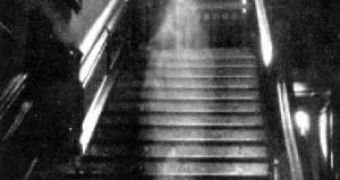Supposedly, higher education should make you more educated, not less. One would expect that students going thru college would learn more things and increase their knowledge. One wouldn't expect them to start believing in ghosts, in the power of the human mind to heal the body, in astrology, or that people sometimes get possessed by the devil.
However, according to a new study conducted by Bryan Farha at Oklahoma City University and Gary Steward Jr. of the University of Central Oklahoma and published by the Skeptical Inquirer apparently that's exactly what happens!
They have asked 439 college students, seniors and grad students, whether they believe in haunted houses, psychics, telepathy, channeling and a host of other questionable ideas. The survey was modeled after a nationwide Gallup Poll in 2001 so the results could be compared with the results on the general public. The Gallup Poll in 2001 had already found that younger Americans were far more likely to believe in the paranormal than older respondents.
The new study showed two things. Firstly, the college students as a whole were more skeptical than the average population - they answered "not sure" more often than "believe" or "not believe". However, when researchers compared freshman with senior students, they found that the senior students were more eager to believe such phenomena are real.
While 23 percent of college freshmen expressed a general belief in paranormal concepts-from astrology to communicating with the dead-31 percent of seniors did so and the figure jumped to 34 percent among graduate students.
"As people attain higher college-education levels, the likelihood of believing in paranormal dimensions increases," Farha and Steward write.
Thus, what happens is this: Higher education first infuses a general uncertainty of all beliefs, and then, this uncertainty provides a fertile ground for the growth of all sorts of anachronistic superstitions. Amazingly or not, higher education does not fulfill its purpose; on the contrary, it creates confused and gullible individuals.

 14 DAY TRIAL //
14 DAY TRIAL //